Bernie Sanders, Elizabeth Warren considered as Hillary Clinton’s vice president
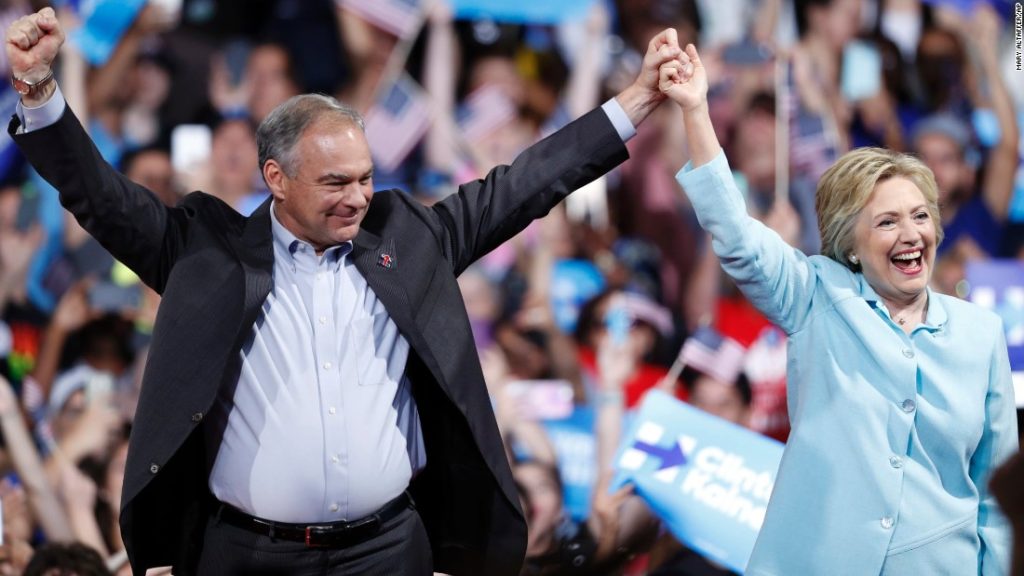
Hillary Clinton‘s campaign circulated an initial list of nearly 40 elected officials, military leaders and corporate CEOs to be considered for vice president last spring. The list was included among hacked emails from Clinton’s campaign chairman disclosed Tuesday by WikiLeaks. The list emailed from John Podesta to Hillary Clinton last March included several Democratic senators, including Elizabeth Warren of Massachusetts and Tim Kaine of Virginia, who was eventually picked by Clinton. Bernie Sanders of Vermont, Clinton’s opponent in the hotly contested Democratic primary, also made the list – at the very bottom. Podesta organized the list into “rough food groups” including blacks, women, and Hispanics such as Obama administration Cabinet members Julian Castro of Housing and Urban Development and Labor Secretary Tom Perez. African-Americans who made the list included Sen. Cory Booker, D-N.J., former Attorney General Eric Holder, and former Massachusetts Gov. Deval Patrick. Besides Warren, women on the list of possibilities included Sens. Kirsten Gillibrand, D-N.Y., Amy Klobuchar, D-Minn., Claire McCaskill, D-Mo., and Tammy Baldwin, D-Wis., who is openly gay. Another group of possibilities that appeared to represent “outside-the-box” options included former New York City Mayor Michael Bloomberg, Tim Cook of Apple, philanthropists Bill and Melinda Gates, Howard Schultz of Starbucks and retired Marine Corps Gen. John Allen. Republished with permission of the Associated Press.
Ronda Walker: the significant, but often under-valued role of Vice President
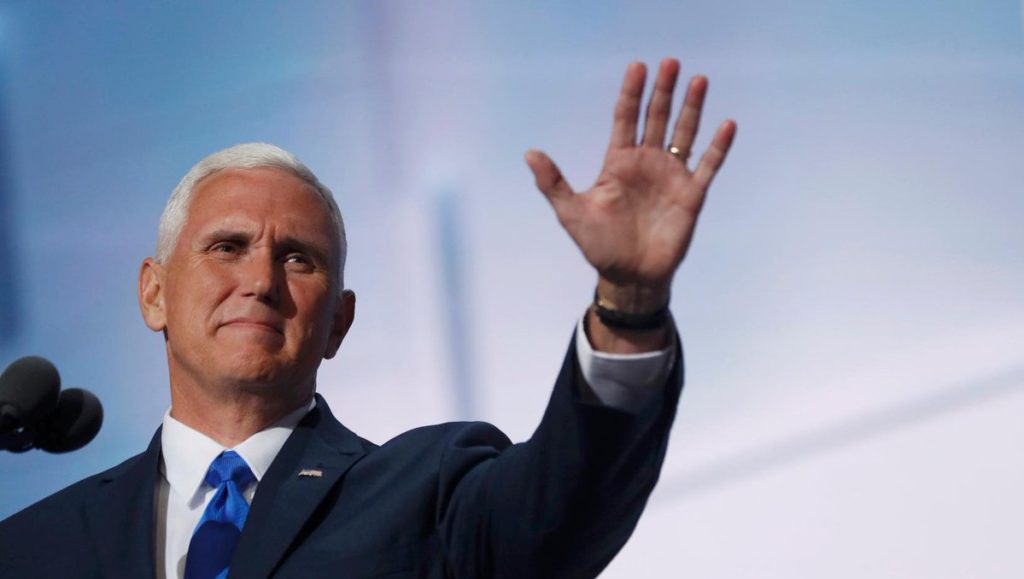
Both of the major political parties in the U.S. are in the midst of selecting the individual who will run for the office of vice president. We know the Republican presidential nominee Donald Trump has selected Indiana Gov. Mike Pence to be his running mate. Next week, the presumptive Democratic nominee, Hillary Clinton, will announce her selection. Of the 47 vice presidents who have served the United States of America, nine have succeeded to the presidency due to death or resignation of the president. Five more veeps were later elected to the presidency. In total, 14 vice presidents have become president of the United States. That is almost 30 percent, a significant number considering the high stakes involved. Yet, as an electorate we are largely indifferent to the individual who is placed second on the ticket. The first vice president of the United States was John Adams, elected in 1789 to serve under President George Washington. Article 2 Section 1 of the U.S. Constitution establishes the role of vice president, to succeed the president in case of removal from office, death, resignation, or inability to discharge the powers and duties of the office. The executive power shall be vested in a president of the United States of America. He shall hold his office during the term of four years, together with the vice president, who is chosen for the same term. However, the role of vice president is not constitutionally vested with any executive branch power. No power. Well, no real power. The VP is the president of the United States Senate, but rarely presides. That role is usually left to the president pro tempore (meaning, president for the time being) of the Senate. The position of vice president has a remarkable lack of responsibility and is perhaps one of the most underutilized jobs in the country. Yet, that individual is literally one heartbeat away from becoming the most powerful person in the world. In the modern era, presidential nominees have hand-selected the individual who will become vice president should they win the general election. Many variables are taken into consideration when making the veep selection. Often, this person is selected based on a perceived home-state advantage, meaning if the presidential nominee selects a running mate from a large battleground state, it will increase their odds of winning that state. However, research has proven such an advantage a myth. The veep on the ticket is no guarantee to deliver their home state; just ask Paul Ryan, Sargent Shriver, Thomas Marshall and some other guys you’ve probably never heard of. Regardless, presidential nominees tend to base their pick on geography versus ability. Two modern era exceptions to that pattern that come to mind are Walter Mondale and Dick Cheney. Both individuals brought a lot of policy and leadership experience to the White House, and both came from small states with few delegates (Minnesota and Wyoming, respectively). Each of these men won their home state. They are both examples of selections based on a desire by the presidential candidate to strengthen the ticket with an emphasis on policy and leadership experience and perhaps even balance out some of their own weaknesses — both real and perceived. There are some memorable vice presidents and some not so memorable. In the memorable crowd are Spiro Agnew, Al Gore, Aaron Burr, and Dan Quayle. On the not-so-well-known list is an Alabamian, William Rufus DeVane King. Most Alabamians do not realize that one of our own served in the role of vice president. Although born in North Carolina, William King moved to Alabama as a young adult in the early 1800s and established a cotton plantation in what would eventually become Dallas County. King became vice president in 1853 and served approximately six weeks before dying of tuberculosis. Exactly 100 years after King, an Alabama slave owner, ascended to the role of vice president, a remarkable 8-year-old Alabama girl named Condoleezza Rice was preparing for a future in academic and public service that would far exceed the role William King played in our nation. Her friends Denise, Carole, Addie Mae and Cynthia would be proud. The electoral college went through several iterations before settling on the selection process we currently know, which follows the pattern of the presidential nominee selecting his own vice presidential nominee. The VP has to be a natural-born United States citizen, at least 35 years old, and to have resided in the U.S. for 14 years. Of particular interest in the modern era is the case of the Richard Nixon/Spiro Agnew ticket. Nixon won the presidency in 1968 with the former Maryland governor as his VP. In 1972 the Nixon/Agnew ticket was re-elected to a second term, beating South Dakota Sen. George McGovern and ambassador Sargent Shriver. As an aside — Shriver was married to Eunice Kennedy, JFK’s sister, and he was the father of Maria Shriver Schwarzenegger, Arnold’s ex-wife. Arnold, of course, being the former governor of California. Back on track, not long after their 1972 re-election, the Nixon/Agnew team would face serious trouble — but we are not talking about Watergate quite yet. It was Agnew who had to resign his office because of charges of extortion, tax fraud and bribery dating back to his official days in Maryland. Charges he denied and claimed were ginned up by Nixon aides to redirect scrutiny from Nixon to Agnew. Nonetheless, with Agnew gone, the position of VP was vacated. Under the terms of the 25th Amendment, Nixon appointed House Minority Leader Gerald Ford as VP. Then, following Nixon’s resignation after the Watergate scandal, Ford ascended to the presidency of the United States of America. Ford was never elected to be vice president or president, but he served as both, the only American to ever do so. Once Ford became president, he needed a VP and selected former New York Gov. Nelson Rockefeller. Interestingly, he considered George H.W. Bush, but went with Rockefeller instead. So, before we dismiss the importance of the office of vice president, consider that a House minority leader from Michigan became president without
Hillary Clinton VP search focus is Tim Kaine, Tom Vilsack, Tom Perez
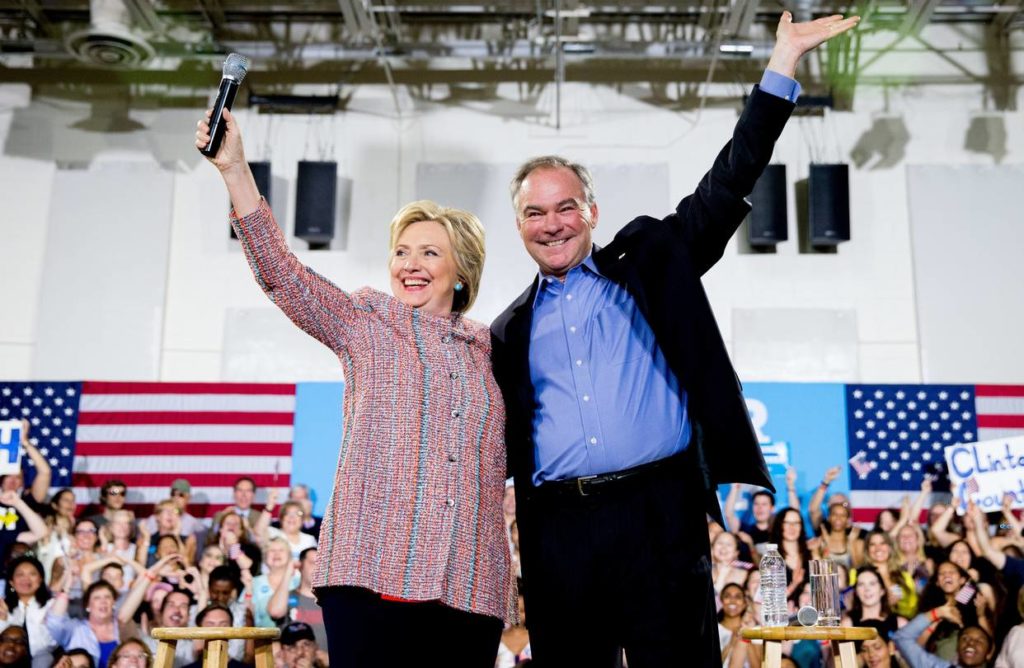
Hillary Clinton‘s vice presidential search is centering on three main contenders, with an announcement expected as soon as Friday as the Democrat prepares for her party’s national convention next week in Philadelphia. Clinton’s campaign has focused in recent days on Virginia Sen. Tim Kaine, a former governor, mayor and one-time Catholic missionary fluent in Spanish; Agriculture Secretary Tom Vilsack, an ex-Iowa governor and longtime Clinton ally; and Labor Secretary Tom Perez, a progressive champion who would be the first Hispanic on a major-party ticket, according to the Associated Press, which cites Democrats familiar with the search. The Democrats cautioned that Clinton had not yet reached a final decision and was weighing a number of factors, including the person’s readiness to be president, personal compatibility and ability to help her administration govern. Massachusetts Sen. Elizabeth Warren, a favorite of liberals, remains in the mix and offers the campaign a fundraising juggernaut and the tantalizing prospect of an all-female ticket. But Warren is not expected to be the final choice, the AP reported, citing Democrats familiar with the process. They spoke to AP on condition of anonymity to describe private discussions about the search process. Clinton’s choice will be the culmination of a closely held search for a running mate, run by a small group of longtime advisers and confidantes. Preparing for a showdown with Republican presidential nominee Donald Trump, Clinton has sought to project an inclusive campaign aimed at “breaking down barriers and building bridges” to mobilize the diverse coalition of voters who twice elected President Barack Obama. Clinton is expected to announce her decision during a two-day campaign swing in Florida later this week. The vice presidential rollout could come at either a Friday rally at the Florida State Fairgrounds in Tampa or at a Saturday rally at Florida International University in Miami, where two-thirds of the student body is Hispanic. Following next week’s Democratic National Convention in Philadelphia, the newly minted ticket is expected to embark on a campaign bus tour, reminiscent of the “First 1,000 Miles” convoy that took Bill Clinton, Al Gore and their spouses across eight states after the party’s 1992 convention. Trump’s choice of Indiana Gov. Mike Pence, a conservative former congressman, for the GOP ticket was not viewed as requiring her to choose a specific running mate in response, according to the AP, citing Democrats familiar with the process. Campaign officials declined to comment. Kaine has been considered a leading contender for weeks based on his broad experience in Virginia, a presidential battleground state, as governor, senator and mayor of Richmond. He also served as chairman of the Democratic National Committee and as a lawyer working on fair housing and civil rights issues. Vilsack, the longest-serving member of Obama’s Cabinet, has known Clinton for many years — his late brother-in-law worked with her in the early 1970s — and she was among his most prominent surrogates in his come-from-behind gubernatorial victory in 1998. Perez, meanwhile, is highly regarded by the White House for his policy chops and could potentially galvanize Latinos who have been turned off by Trump’s harsh rhetoric about Hispanics. The son of immigrants from the Dominican Republic, Perez played a behind-the-scenes role as a federal prosecutor, a top aide to the late Sen. Ted Kennedy and the head of the Justice Department’s civil rights division. Both Vilsack and Kaine have been through the process before. Vilsack was among the final group considered by John Kerry in 2004 and Kaine was vetted by Obama’s team four years later. If either Vilsack or Perez were selected, they would be required to resign from Obama’s Cabinet. Clinton’s decision will be steeped in her personal experience. She was involved in her husband’s selection of Gore in 1992 and has the unique vantage point of having seen up close the various roles played by the vice president. In an interview this week with Charlie Rose of CBS News, Clinton said her main criterion was “would this person be a good president? You know, I am afflicted with the responsibility gene and I know what it’s like being president.” Quizzed on potential running mates, Clinton noted that Kaine had “never lost an election” and was a “world-class mayor, governor and senator.” She said Warren had “put the agenda of inequality front and center.” Clinton also praised retired Adm. James Stavridis, a former NATO supreme allied commander, calling him “exceptional.” Other possible choices include Housing Secretary Julian Castro, Colorado Gov. John Hickenlooper, Ohio Sen. Sherrod Brown and New Jersey Sen. Cory Booker. Clinton met with Castro, Hickenlooper and Warren at her Washington home on Friday. Republished with permission of the Associated Press.
Jeff Sessions could be a good choice for Donald Trump’s VP
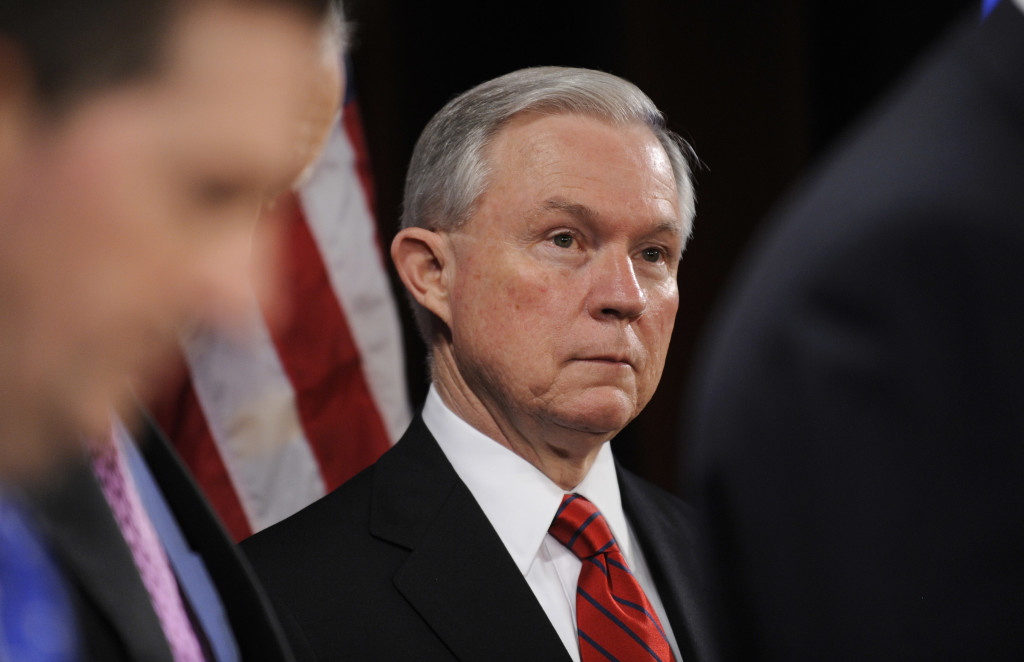
Who presumptive Republican nominee Donald Trump will pick as his running mate has been a focal point since the 2016 presidential shifted toward the general election. Campaign insiders say the businessman is likely to pick Indiana Gov. Mike Pence, New Jersey Gov. Chris Christie or former House Speaker Newt Gingrich, but Alabama Sen. Jeff Sessions said this week he would answer the call to be Trump’s running mate if asked. But would Trump pick Sessions? The 20-year U.S. Senate veteran has been one of Trump’s most vocal supporters, especially on his plan to build a wall across the U.S.-Mexico border and on trade issues, but it’s hard to see what the Alabama Republican could bring to the ticket, especially with Trump needing to woo Rust Belt voters in his campaign against Hillary Clinton. Sessions was the first senator to back Trump’s bid for the GOP nomination, and he even donned a “Make America Great Again” hat during a Trump rally in Mobile, but he doesn’t have near the name recognition as Christie or Gingrich, nor the Midwest ties of Pence. Trump likely doesn’t need help winning over Deep South voters, either. Of course, Sessions also doesn’t have a black mark like “bridge-gate” or passing anti-LGBTQ rights legislation in the recent past. Trump is expected to pick his running mate Friday, though those close to the campaign say he could make the announcement anytime this week — perhaps after a planned public rally with Pence set for Tuesday.
Hillary Clinton’s VP thinking: Don’t harm Dem chances to take U.S. Senate
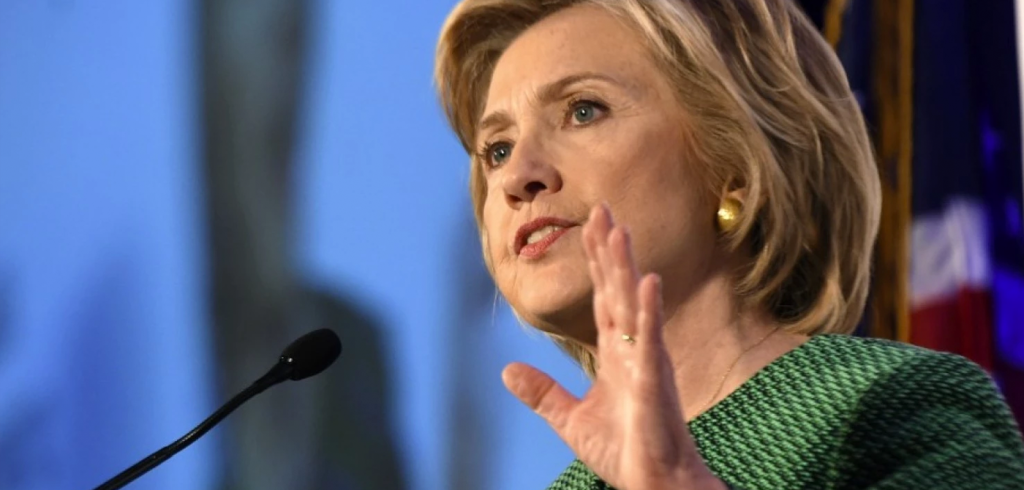
As Hillary Clinton considers her choices for vice president, she’s seriously weighing the potential negative impact her decision could have on Democratic efforts to retake control of the Senate, according to party members familiar with her thinking. She’s also said to be worried about how her pick could affect congressional elections in 2018, at the midpoint of her presidency should she win the White House. Her political calculus underscores how closely linked she believes her success as president would be to having her party in power on Capitol Hill. Clinton’s concerns center on senators whose seats would be filled by a Republican governor if they move into the White House – including Cory Booker of New Jersey and Sherrod Brown of Ohio. Examined by Clinton’s vetting team in an early stage of the vice presidential process, it’s unclear whether they have been moved onto her short list. The Democrats familiar with Clinton’s thinking all spoke on condition of anonymity, because they were not authorized to publicly discuss her search for a running mate. Clinton’s team is moving through the selection process quickly. Lawyers have already requested documents and questionnaire replies from Massachusetts Sen. Elizabeth Warren, Virginia Sen. Tim Kaine and Housing and Urban Development Secretary Julian Castro of Texas. Interviews with Clinton will be scheduled for early next month. Top Senate Democrats, including Minority Leader Harry Reid, U.S. Sen. Chuck Schumer, who will succeed the retiring Reid next year, and U.S. Sen. Jon Tester, head of the Democratic Senatorial Campaign Committee, have expressed concerns about Clinton’s vice presidential pick complicating their efforts to retake the majority. Democrats need to gain four seats in November to win control of the chamber if Clinton is president. “If we have a Republican governor in any of those states, the answer is not only no, but hell no,” Reid said last month. “I would do whatever I can, and I think most of my Democratic colleagues would say the same thing.” For Reid, there’s one exception: Warren. Reid and other Democrats have been reviewing Massachusetts rules for filing a Senate vacancy and are confident there are ways to speed up a special election they believe would return a Democrat to the seat before the next president takes office, despite GOP Gov. Charlie Baker’s power to tap a temporary replacement. Reid is actively pushing Clinton to tap the leading Senate progressive, who vigorously spoke up for her as they campaigned together in Cincinnati on Monday. He’s argued against picking Booker or Brown because of concerns about Senate control, according to Democratic officials. Both Booker and Brown have been active supporters of Clinton, frequently delivering impassioned introductions at events. But former Republican presidential candidates, New Jersey Gov. Chris Christie and Ohio Gov. John Kasich, would appoint their successors. “I’m a big Sherrod Brown fan,” Tester recently told Public Radio International. “It has a Republican governor in the state of Ohio, so it probably wouldn’t be good for the body, but I think he’d bring a nice mix to the ticket.” Clinton has made rebuilding state Democratic parties, which have languished under President Barack Obama, a key theme of her presidential run. “It’s not about me, it’s about us,” she told a meeting of House Democrats last week, stressing her focus on electing Democrats up and down the ticket. Democrats have a narrow but plausible path for retaking the Senate in November. Several seats are being contested in Democratic-leaning states, including Illinois, Wisconsin and Pennsylvania. Democrats are also hoping that if Clinton carries battlegrounds like Florida, Ohio and New Hampshire, the party could pick up Senate seats there as well. But a Democratic takeover of the Senate in November could be short-lived, deepening Clinton’s concerns about putting a safe seat in jeopardy. The election landscape for Senate Democrats in 2018 is grim, with their seats open in several Republican-leaning states. Campaign aides say Clinton is getting plenty of not-so-subtle suggestions from Democratic allies, donors and friends. “Whoever she picks is going to be the right person for her,” said former Vermont Gov. Howard Dean, an early Clinton backer. “But I’d pick somebody under 50. It’s time for a new generation to take power in Washington, especially in the Democratic Party.” But Clinton is skeptical of playing the role of party kingmaker, say people familiar with her thinking. She worries that by picking a younger running mate, she might appear to be selecting her successor – a responsibility she believes should rest with the next generation of Democrats. Clinton aides, who refused to comment on specific candidates under consideration, have hinted that she may be considering a far broader group that may include some non-traditional choices, including business leaders or even Republicans. “The list is probably bigger than people think,” said chief campaign strategist Joel Benenson on MSNBC recently. “It’s the first important choice the nominee has to make and it’s up to Hillary Clinton.” Republished with permission of The Associated Press.
Marco Rubio on VP rumors: ‘I have never sought, will not seek and do not want to be considered’
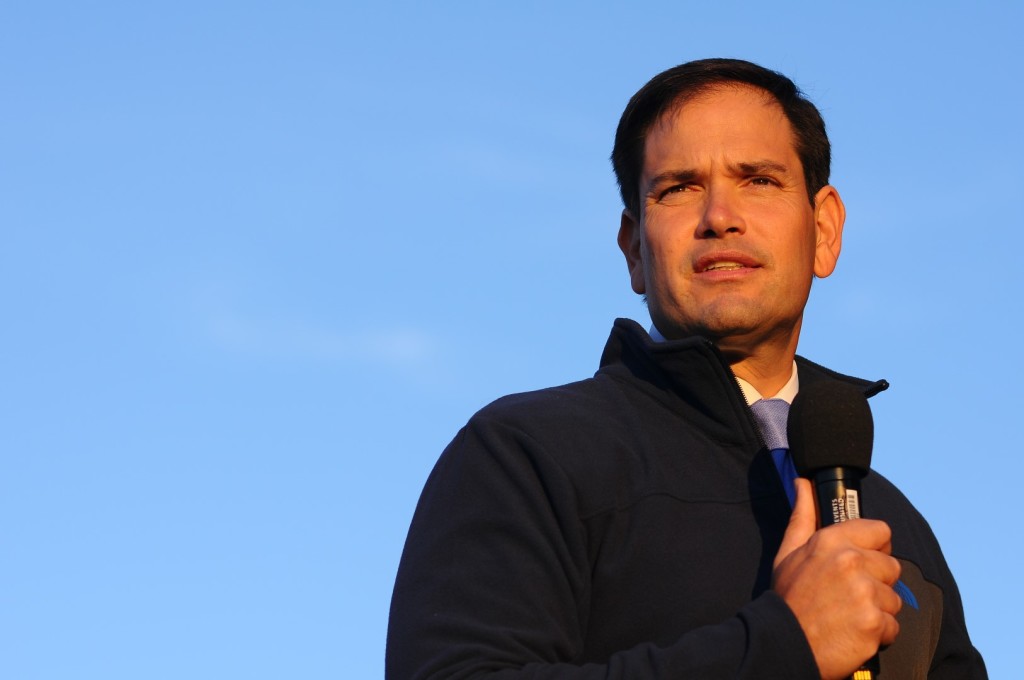
Cross Marco Rubio off the list of possible vice presidential candidates. In a Facebook message Monday, the Florida Senator said he would not seek and do not want to be considered for vice president. The announcement came after some had speculated Rubio was in the running to join Trump on the ticket. “While Republican voters have chosen Donald Trump as the presumptive GOP nominee, my previously stated reservations about his campaign and concerns with many of his policies remain unchanged,” said Rubio in a statement, which was first reported by CNN’s Jake Tapper. “He will be best served by a running mate and by surrogates who fully embrace his campaign. As such, I have never sought, will not seek and do not want to be considered for Vice President.” Rubio was one of more than a dozen Republicans vying for their party’s nomination, but suspended his campaign after a devastating loss in Florida. He said Monday he planned to focus on helping his constituents. “I will focus my attention on representing the people of Florida, retaining a conservative majority in the Senate and electing principled conservatives across the country,” he said in his statement. Rubio is not running for re-election. He is also the second Florida Republican who has said he wouldn’t run as Trump’s vice president. When asked last week about it, Gov. Rick Scott said he would “pass” on the nomination. “I’m flattered that people would even say things like that, but I like my job,” he said. “I got re-elected in 2014. I’m going to finish my job here. So I’ll pass.”


